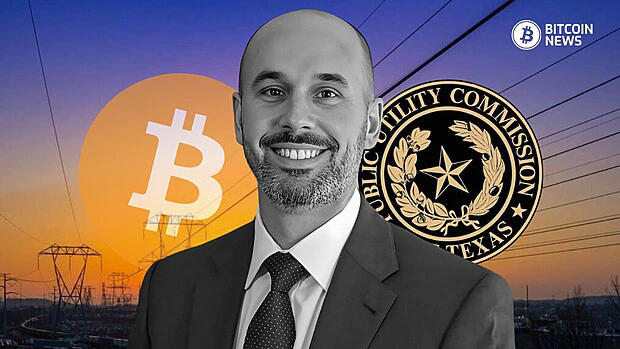Bitcoin mining has become a booming industry in Texas. With its relatively low energy costs and initially favorable regulations, the state has attracted miners from around the world.
However, the rapid growth of mining facilities has sparked concerns about its impact on the state’s power grid and nearby communities.
To address these challenges, the Texas Public Utilities Commission (PUCT) has introduced a new rule aimed at better managing the state’s energy infrastructure.
On November 21, the PUCT announced a rule requiring all bitcoin miners connected to the Energy Reliability Council of Texas (ERCOT) grid to register with the commission.
The rule mandates miners to disclose critical details about their facilities, including location, ownership, and electricity usage. This information must be submitted within one business day after connecting to the ERCOT grid and renewed annually by March 1.
According to PUCT Chairman Thomas Gleeson, the regulation is essential for ensuring the grid remains reliable. Gleeson stated:
“To ensure the ERCOT grid is reliable and meets the electricity needs of all Texans, the PUCT and ERCOT need to know the location and power needs of virtual currency miners.”
Failure to comply could lead to a Class A violation, carrying fines of up to $25,000 per day.
Texas has become a global hotspot for Bitcoin mining, particularly after China banned the practice in 2021. The Lone Star State’s deregulated energy market and access to renewable energy sources have attracted major mining operators.
Related: Canada, Texas, And Paraguay: Changing The Narrative On Bitcoin Mining
As of 2023, five of the world’s ten largest bitcoin mines are in Texas, consuming more than 1,200 megawatts (MW) of energy.
However, the growth hasn’t come without issues. Bitcoin mining facilities use vast amounts of electricity to power their machines and cooling systems, sometimes straining the state’s grid.
Residents near these facilities have also raised concerns about noise pollution and potential health effects from the nonstop operation of mining rigs.
The PUCT hopes the new rule will provide better oversight and prevent power disruptions, particularly during peak usage periods.
The introduction of this rule highlights Texas’ efforts to balance its leadership in the Bitcoin sector with the need to protect its energy resources.
The flexibility of bitcoin mines to adjust power consumption quickly has been cited as a potential benefit for managing the grid, but unchecked growth could lead to significant risks.
PUCT’s move aligns with broader discussions among Texas lawmakers about integrating bitcoin mining into the state’s strategic plans.
For example, proposals for a strategic bitcoin reserve and Senator Ted Cruz’s advocacy for making Texas a “Bitcoin oasis” underscore the state’s ambition to lead in innovation.
Cruz has been vocal about his support for Bitcoin and its decentralized nature.
The republican senator stated in a recent interview that the biggest threat to Bitcoin is the federal government. “I want it out of government control; I don’t want federal bureaucrats having control over it,” he said, while adding:
“I want Texas to be the oasis for Bitcoin and cryptocurrency; we are seeing miners and innovators from all over the world coming to Texas to invest and create new jobs when it comes to Bitcoin and crypto.”
The need for oversight became clear after Texas experienced multiple power crises, including the 2021 winter storm that left millions without electricity. Bitcoin mining’s significant energy demands have raised concerns about grid reliability, prompting regulators to take action.
“This is another example of the PUCT and ERCOT adapting to support a rapidly changing industrial landscape,” Gleeson said. “Most importantly, we will always take the steps necessary to ensure reliable, affordable power for all Texans.”
While the new rule introduces additional compliance requirements, it also signals a maturing industry in Texas. By integrating miners into the state’s energy strategy, Texas hopes to mitigate risks while supporting innovation.
The regulation also ensures that miners contribute to maintaining grid stability. With penalties for noncompliance, the state is serious about enforcing its standards.
Texas remains a critical player in the global bitcoin market, and its approach to regulation may serve as a blueprint for other regions grappling with the challenges of bitcoin mining.
By striking a balance between supporting the industry and safeguarding its energy resources, Texas aims to lead the way in Bitcoin innovation while addressing the needs of its residents.
As bitcoin mining continues to evolve, the success of these regulations will depend on the cooperation of miners, lawmakers, and regulators. For now, Texas is charting a path that prioritizes both growth and responsibility in this fast-moving sector.










